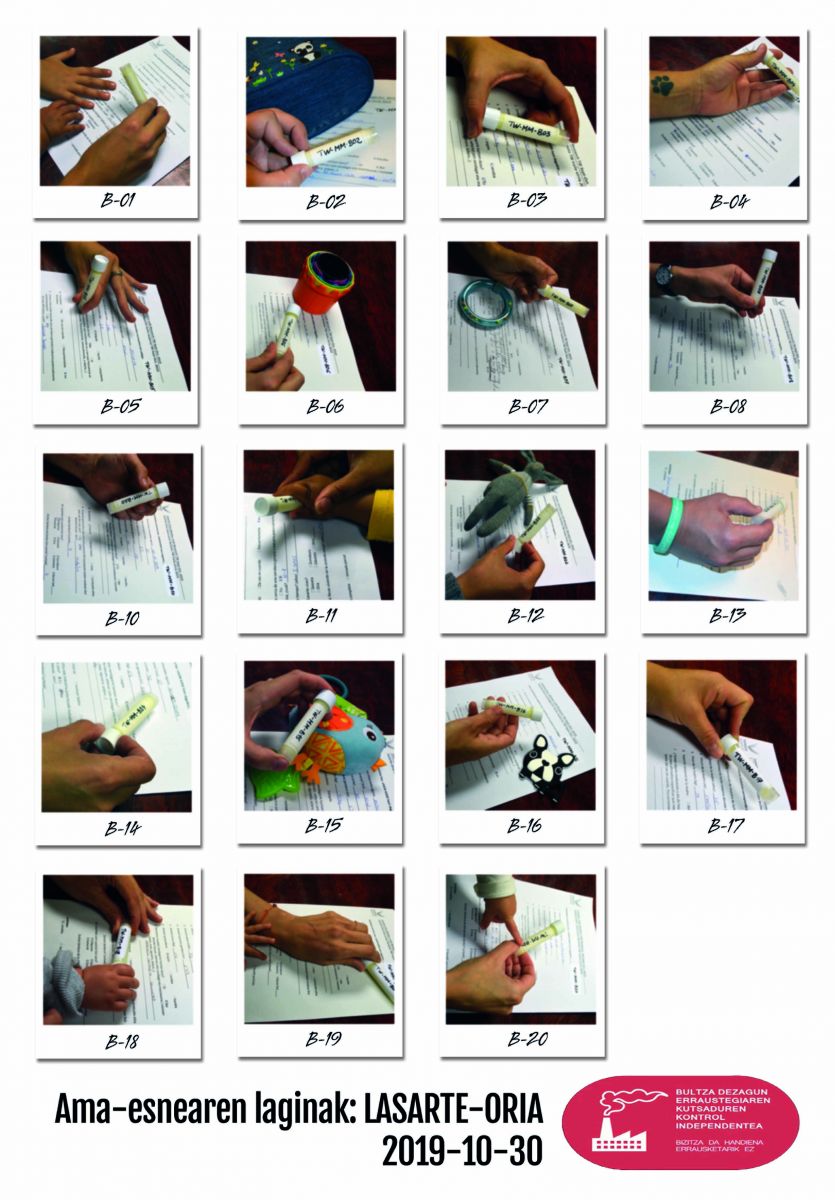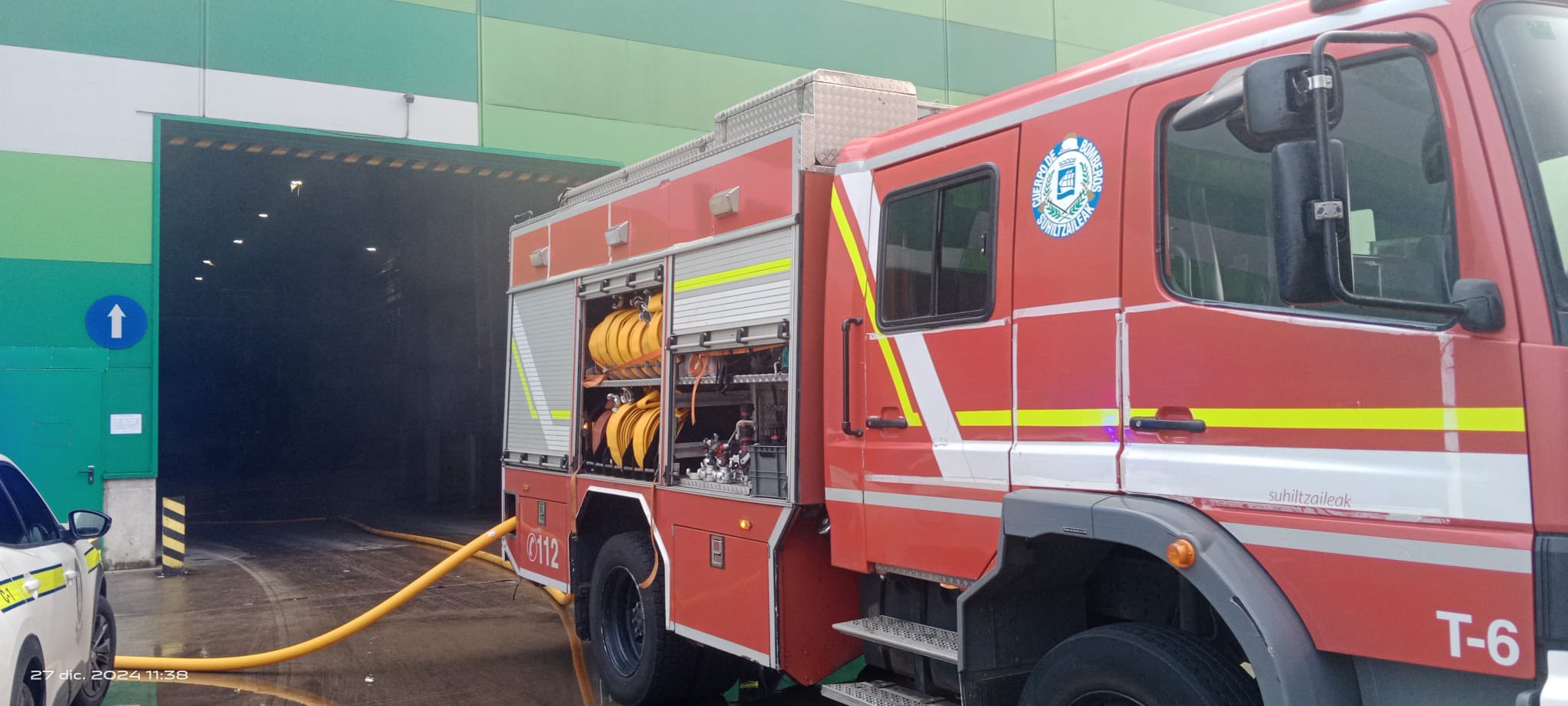Investigated the breast milk of a group of mothers in the area due to the concern of the incinerator
- Breast milk, one of the most solid sources of food, emotion and welcome among newborn babies and mothers, is investigated. Investigated by the concerns raised by the incinerator, which is about to turn on in Zubieta. [As the Zubieta Lantzen association begins and is driving the Anti-Incineration Movement, the Dutch foundation Toxicowatch has begun to analyse samples of hens from the area, it has now been known that it will also investigate breast milk from several women from Usurbil, Lasarte-Oria and Andoain. Noaua has taken up the testimony of Usurbil. ARGIA Note]

Breast milk, one of the most solid sources of food, emotion and welcome among newborn babies and mothers, is investigated. Investigated by the concerns raised by the incinerator, which is about to turn on in Zubieta.
You will remember the research work that Zubieta Lantze does to measure the pollutants in the incinerator. Before the outbreak of this infrastructure, two scientists from the Dutch Toxicowatch Foundation collected samples from the local cooks. If the incinerator is turned on, the intention is to repeat this study every year. “They work closely with their own laboratory. When they presented the project here to the laboratory they considered it very interesting and commented that it would be even more interesting to take breast milk samples,” he told NOAUA! one of the members of the citizens' group who spoke with the Dutch foundation, Maider Usabiaga. A group of women took the proposal and the elaboration process was launched. They were very concerned about the reception that the initiative was going to take among mothers. “We have received a great many positive energies. They have all put all the facilities to us with a smile, they have been animated very easily”, says Usabiaga. A group of mothers have donated their breast milk to be investigated in the Netherlands. The procedure has been carried out with all guarantees, taking the appropriate steps, as well as the necessary information and instructions.
They have praised the attitude of this group of mothers and fathers, who have shown their support. “They’re in a very intimate relationship with the future. They have given us a lesson,” he added. Now that they are about to ignite the incinerator, “what these mothers have taught us is that we have to take up the issue without worrying so much. That we have to do what is in our hands.”

Concerned about the impact of the incinerator
The relationship they have had with a group of mothers and fathers from the locality has been a nice and pleasant work. “They’ve been an example for us,” according to Usabiaga. Among the protagonists of the series were the following groups: Koruko Eguren, Lide Arriaga, Onintza Gartzia and Ainhoa Arrozorder. When at the end of September the participants in the Zubieta Lantzene project approached them, they received the initiative with a thank you for the work being done by the volunteer group of citizens and the treatment they have received. “I am truly concerned about the issue of the incinerator, even more so now, being children. I thought it was a good idea to know to what extent the incinerator is going to affect us,” says Lide. “Why not?” says Koruko, “with a simple action that is in my hand, we may know many things. Furthermore, it seems that the incinerator is built, so it seems that it should be accepted. It has been a small act of opposition.”
In the same vein, Onintza pointed out that “a great deal of work is being done to keep the incinerator and it is to be welcomed. Organize such an initiative, if I can help you move forward.” As Ainhoa explained to us, “it was already very clear before the incineration plant will benefit the economy, knowledge and health from nothing.” Reflecting on this study, “it is so special and useful to breastfeed both the mother and the child. I am very concerned to think that an incineration plant can harm it, because of the carelessness and irresponsibility of others.” She makes it clear: “I want to leave my child the same world that my parents have left me or better if I could. And I’m very clear that with this incinerator I’m not going to leave a better world to my descendants.” This concern has led him to participate in this study and told us that if he continued to breastfeed for a year, he would “make that contribution again”.
They consider it necessary to continue to demonstrate the impact of the incinerator if necessary. This concern about motherhood is very intense. If the study shows in the future that the incinerator is harmful to breast milk, will formula milk be better than breast milk? If this were the case, “if it affected the quality of milk that our descendants’ sons and daughters can receive, it would be very serious,” according to Ainhoa. “It’s a big impotence to think that since the baby is born we may be able to harm breast milk,” says Koruko. Painful and severe, according to Ainhoa, to think that this special moment of giving breast milk “can become frustrated or harmful by the weariness and irresponsibility of others. No one has the right to harm him.” Onintza has warned us of the importance of the issue; “Whoever decides to breastfeed only takes it for six months. He has no other choice.”

“If it can cause health problems, why is the project moving forward?”
On the subject of the climate emergency, this group of mothers reminds us that we have a clear example of climate change at home. And in this sense, in Zubieta Lantze “this initiative is also our contribution to it”.
The incinerator is built, they say they will soon turn it on. Given the situation in which we find ourselves, this group of mothers insists on the same word, the concern. It will be a “permanent concern”. “If it can cause health problems, why does the project move forward? Will we be in the best conditions to live here?”, some of the issues of concern raised by the group of mothers. Once these questions have been raised, the feeling of impotence is accompanied by concern, as it can influence the breast milk being given to children.
They feel helplessness and pain from motherhood, seeing that they're going to start this infrastructure. “Alternatives are proposed and not taken into account. It’s totally inconsistent,” according to Onintza. And “spread painfully when there are alternatives to the incinerator. I was worried before, but since I am a mother, I have been worried.” The word that is most concerned is the one that has spoken most about the studies of the different scientists and international experts that the Health and Incineration Research Group has published in recent years, or close to here, knowing the alarming results of the observations that have been made in the vicinity of the incinerator of Zabalgarbi.

“Let each help as much as possible to stop the incinerator”
Looking to the future, how can we deal with children who are born and grow in these years with the issue of the incinerator that they have every day in view when they leave the ikastola and go down to the village? The group of interviewees tells us about the time to talk to their children about a vision they consider painful. “The day will come when they will ask about the incinerator and it will have to be explained. It will be very contradictory. At home they will selectively pick it up, they will take little fuel out of the boat and in front of it, what can harm it will be very painful,” Ainhoa said. If there were parents who could be in favor of the incinerator, they have planned “what would they answer these questions of boys and girls?”
Even more so when the incinerator is about to ignite it. It seems important to this group of mothers, given the situation we are experiencing, to make whatever contribution they can, like them. “Let each one help as much as possible to stop the incinerator and others to see the reality,” Onintza said. In this visibility, they have called to "inform, not politicize". In Ainhoa’s opinion, this issue has also called into question the current model of democracy or participation, “to see if we want to leave this management model to our sons and daughters.” When there is no broad consensus on an issue such as that of the incinerator of concern, it believes that management of another kind needs to be reoriented. Beyond voting every four years, “other participatory processes must be opened. We have to empower citizens on many issues.”





















